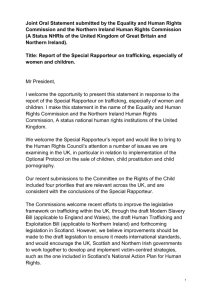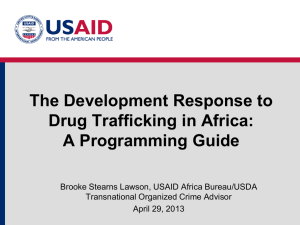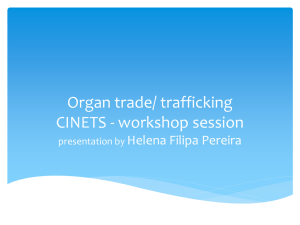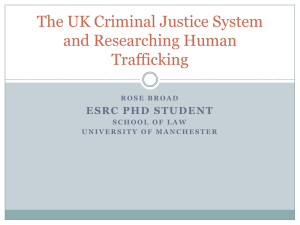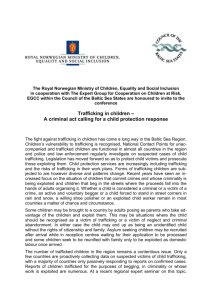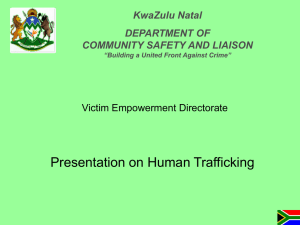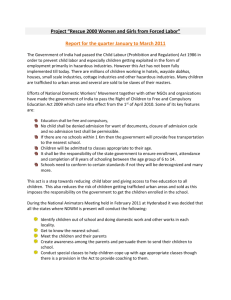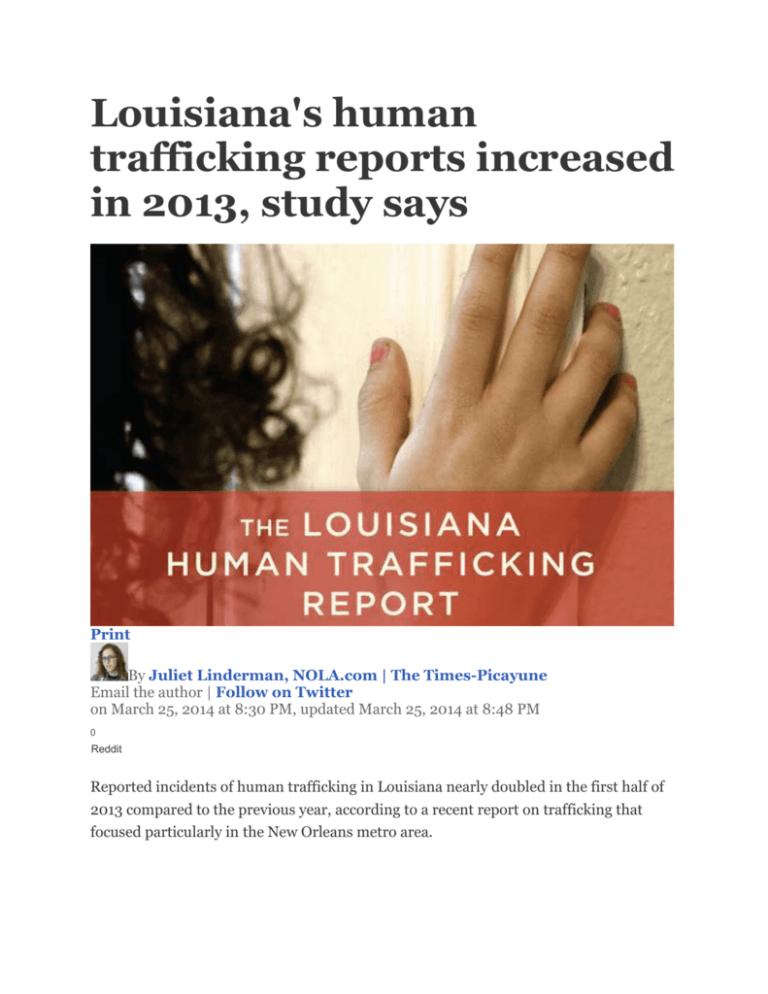
Louisiana's human
trafficking reports increased
in 2013, study says
Print
By Juliet Linderman, NOLA.com | The Times-Picayune
Email the author | Follow on Twitter
on March 25, 2014 at 8:30 PM, updated March 25, 2014 at 8:48 PM
0
Reddit
Reported incidents of human trafficking in Louisiana nearly doubled in the first half of
2013 compared to the previous year, according to a recent report on trafficking that
focused particularly in the New Orleans metro area.
In the first six months of 2013, a hotline run by the National Human Trafficking
Resource Center received roughly 227 calls from Louisiana, 50 of which were likely
human and sex trafficking cases, the report said. That's a dramatic upsurge from 2012,
when the hotline received 223 calls from Louisiana in the entire calendar year, 40 of
which were likely cases.
The report calls New Orleans a "significant source, transit and destination location for
human trafficking," citing its location and seemingly constant need for temporary
workers as primary reasons.
The 40-page report was the result of a collaborative effort between the Modern
Slavery Research Project at Loyola University and the New Orleans Human
Trafficking Working Group, and was spearheaded by Loyola professor Laura Murphy. It
provided a glimpse into the underworld of human trafficking, defined by coercion into
sex or labor by force or under the threat of violence.
To prepare the report, Murphy and co-author Brian Ea spent nine months researching
and interviewing survivors of sex and human trafficking in the New Orleans area.
Of the 50 likely human trafficking cases called in to the National Human Trafficking
Resource Center in the first six months of 2013, 68 percent involved sex trafficking,
including pimp-controlled situations, internet-based commercial sex and escort
services, the report said. The research also found that one of every four male clients and
a third of female clients at Covenant House of New Orleans, an emergency shelter
program for teens and young adults, have at one point traded sex for money or shelter.
After Hurricane Katrina ravaged New Orleans in 2005, thousands of temporary guest
workers flooded the city, eager for construction jobs. According to a study conducted
by the Human Rights Center of the University of California at Berkeley, 54 percent of
those workers were undocumented, setting the stage for human trafficking abuses that
can occur when workers are in the United States on work or guest visas, Murphy wrote.
Human trafficking does not require crossing state lines, only force, fraud or coercion.
Murphy's report highlighted Million Express Manpower, Inc., a firm that after
Hurricane Katrina recruited Thai workers by promising them agricultural jobs in North
Carolina but instead routed them to New Orleans. Once in Louisiana, Murphy wrote,
"they were forced to do construction work and held hostage by armed guards in squalid,
un-rehabilitated buildings. Their passports and visas were confiscated. They were given
no money for food, so they were forced to eat birds they caught outside their building."
The report reflects increased awareness of human trafficking.
"Generally, the issue of human trafficking is going through an inflection point right now,
where there is noticeable increase in awareness and engagement on the issue," said Brad
Myles, CEO and executive director of Polaris Project, the non-profit organization that
runs the National Human Trafficking Resource Center.
"It's an underground crime -- a fluid and dynamic crime that's always changing. The
field, on a national level, is pivoting towards and increased focus on measurement and
scoping out prevalence and focusing on outcomes, and focusing on better research and
data."
The report suggested ways to combat human trafficking in Louisiana through a
combination of legislation, law enforcement and awareness.

